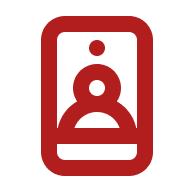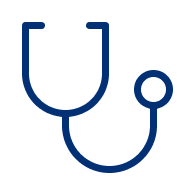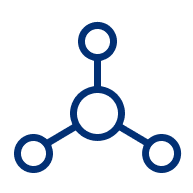Ensure optimum product performance
Our skilled test architects and engineers provide comprehensive software quality assurance services covering all testing categories. We create custom solutions for a variety of testing needs, including API, unit, multi-browser, and multi-device testing, delivering excellence and expertise in every aspect of our software QA services.

Manual Testing
We conduct manual testing to evaluate the usability and user interface of the product, as well as its performance on various devices. Our experts provide customized feedback and uncover vulnerabilities beyond automated testing.

Component & Unit Testing
Our component testing approach at Agile Soft Systems guarantees that every software component undergoes rigorous testing for quality, performance, and security. This ensures optimal software functionality and a bug-free environment in the real world.

ERP Testing
Our ERP testers offer domain and technical expertise for multi-industry clients in ERP implementation and asset migration. We handle end-to-end testing processes, including test strategy development and execution, resulting in top-quality and low-risk solutions.

Mobile Testing
We deliver exceptional mobile app testing services to ensure your app functions flawlessly on various devices, operating systems, and versions. Our testing adheres to the strict quality standards set by Apple and Android, guaranteeing a smooth user experience.

Automation Testing
We combine the power of automation testing with manual expertise to accelerate the product launch process. This comprehensive approach ensures all functionalities of your software are thoroughly tested, leading to a robust and bug-free end product.

Functional Testing
Our functional software testing encompasses a broad range of solution functionalities, including UI testing, functionality testing, data verification, user compatibility, API testing, regression, and user acceptance testing service

Regression Testing
Ensure that modifications to your system have not impacted its functionality and features by utilizing Agile Soft Systems regression testing services. We retest the software after code changes or updates to guarantee its performance.

Performance Testing
We offer comprehensive performance testing services enabling businesses to evaluate individual system component’s performance. Our end-to-end solution includes detection, analysis, and corrective action. We also provide scalable performance testing suites utilizing open-source tools such as Apache JMeter.

Usability Testing
Agile Soft Systems offers GUI testing to ensure optimal user experiences, expand target audiences, and drive revenue. Our GUI testing team ensures an attractive and user-friendly front end, enhancing the customer experience.

Security Testing
At Agile Soft Systems, our Security Testing services utilize cutting-edge technologies and approaches to uncover security vulnerabilities and ensure minimal security risks, making the most effective use of time and resources.

Game QA
We tailor high-quality game testing services with our extensive genre experience, working closely with clients. Our game testing lab conducts multi-platform game testing on real hardware, including PC, console, AR/VR, and mobile devices.

Load Testing
In today’s digital world, fast website load times, application performance, and scalable web services/APIs are essential. Our load-testing experts identify performance issues in the SDLC to optimize critical apps and provide a seamless customer experience.
Guarantee Bug-Free Software with Our Reliable QA Services
Benefits of our Software Testing Services
Employing agile methodologies and leveraging our structured processes, tools, and techniques, our software QA experts offer unparalleled software testing and QA services, including test automation, performance testing, security testing, and functional testing, to a wide range of industries.
20-40% reduced testing costs
18% reduced testing time
15-20% reduced software maintenance costs
Zero severe defects
Industries We Serve
We provide tailored application solutions, including online, mobile, and desktop applications, as an up-and-coming custom application development company. We are a group of seasoned app developers with experience in multiple industries.
Software Testing Process
At Agile Soft Systems, we follow a rigorous software testing process to deliver user-friendly and bug-free applications. Our experienced QA analysts leverage this standardized approach to guarantee quality:
Requirement Analysis
Our testers delve into the software's functionality and non-functional requirements. This understanding allows them to design an effective test plan tailored to your application's specific needs.
Test Plan Creation
Based on the requirements, a detailed test plan is crafted. This plan outlines the testing objectives, test cases, and methodologies to be used – essentially, a roadmap for the entire testing process.
Test Documentation Development
With the plan approved, our team meticulously develops test documentation. This includes test cases, scenarios, and scripts that meticulously verify the software's functionality, performance, and usability.
Testing Environment Setup
A testing environment is meticulously constructed replicating the software's production environment as closely as possible. This ensures accurate testing results and smooth transition to real-world use.
Test Case Execution
Our testers meticulously execute the defined test cases, verifying that the application behaves as expected. Any bugs or issues encountered are documented for further analysis and resolution.
Test Cycle Closure
This iterative process continues until all test cases are executed and the software is thoroughly tested. Once satisfied, the application can be released with confidence, knowing it has undergone rigorous quality checks.
Why Hire Software QA Testers From Agile Soft Systems Inc?
Our Software QA Testers thoroughly validate every aspect of the products to reduce their defects, using cutting-edge techniques like penetration testing to close security gaps using both automated and manual processes, as well as re-running functional and non-functional tests to check for bugs or breaks in new code.
Deliver Immense Quality & Reliability :
Reliability testing makes sure a software project works as likely in regular and odd scenarios.
Lower Project Costs :
Accurate and before-time detection of faults lowers the cost of the project cutting the scope of the rework.
Trim Down Time To Market :
Reduction in time-to-market along with improvements in the software quality.
Better Dealing With Risks :
Extensive mitigation of the project, business, and technical risks.
Constant Advancement :
Our software quality assurance tester ensures to provide you with improved and advanced testing solutions through our skills, new processes, and futuristic tools.
Robust Methods :
From due diligence to ROI tracking, we add flexibility and rigor to the entire test process.
Success Stories
FAQs
QA and Testing both are different concepts. Any problems or errors that can arise during the software development process are helped to be avoided by quality assurance. Software testing, on the other hand, aids in locating and correcting any potential mistakes.
The QA will draft the strategic report following a site assessment. Before being sent to the service for a factual accuracy (FA) evaluation, this will go through the quality assurance (QA) procedure, which might take up to 2 weeks in total.
Software testers use a variety of testing technologies to assess the software’s quality. Here are the different testing tops:PostMan,Selenium,JMeter,Cucumber,Katalon
You can save money, resources, and time by working with software testing outsourcing businesses like ours. It is a significantly less expensive option than internally employing, training, and equipping a new or developing team with quality resources.
Quality control (QC) is the process of identifying and correcting defects in a product or service before it is released to customers. Quality assurance (QA) is the process of ensuring that the product or service is being developed in a way that meets the required standards and specifications. While QC focuses on identifying and correcting defects, QA focuses on preventing defects from occurring in the first place by establishing and monitoring processes and procedures.
The role of QA in software testing is to ensure that the software being developed meets the required standards and specifications. QA accomplishes this through a range of activities, including: Developing and implementing test plans and test cases Conducting functional and non-functional testing Performing regression testing Identifying and reporting defects Verifying that defects have been resolved Monitoring and evaluating the software development process Ensuring that quality standards and procedures are being followed
Testing is important in software development because it helps to identify defects and errors in the software before it is released to end-users. This improves the quality and reliability of the software, reduces the risk of defects causing problems for users, and ultimately saves time and resources in the long run.
Open source testing tools are software testing tools that are freely available for use and modification under an open source license. These tools offer an alternative to expensive commercial testing tools and are often developed and maintained by a community of volunteers. Some popular open source testing tools include Selenium, Appium, JMeter, Cucumber, and TestLink.
The duration of software testing depends on various factors, including the size and complexity of the software, the testing methodology, the number of testers involved, and the types of tests being performed. Generally, software testing can take anywhere from a few days to several weeks or even months to complete.
Agile methodology is an iterative and incremental approach to software development that focuses on delivering working software in shorter development cycles called sprints. Agile methodology emphasizes collaboration and flexibility, with testing being integrated throughout the development process. This allows for faster feedback, better adaptability to changes, and higher quality software.
There are various tools used for mobile application testing that help ensure the quality and functionality of mobile apps across different platforms and devices. Some popular tools for mobile application testing are Appium, Selendroid, Xamarin Test Cloud, Robotium, Calabash, etc.
To write a quality assurance plan, follow the following steps: Define the scope and objectives of the plan. Identify the quality standards and metrics to be used. Establish quality assurance processes, procedures, and responsibilities. Develop a testing strategy and test plans. Define reporting and communication procedures. Continuously monitor and evaluate the effectiveness of the plan and make improvements as needed.
To track the QA testing process, follow these steps: Establish a test plan and define testing objectives. Create a test case management system to organize and track testing progress. Use test management tools to track defects, assign tasks, and report on testing status. Set up automated testing processes to reduce manual testing time and increase efficiency. Conduct regular meetings with the QA team to review testing progress and address any issues. Continuously monitor and evaluate the testing process to identify areas for improvement.
The benefits of outsourcing Agile Soft Systems software QA services include: Access to global talent Reduced time to market Enhanced testing coverage Improved testing efficiency 24/7 testing
We adhere to quality standards at every stage of our QA processes, which is crucial in minimizing issues and inaccuracies in the end product. This approach enables organizations to fulfill the expectations and demands of their clients, paving the way for the development of superior-quality products. In turn, this enhances the confidence and loyalty of customers toward the brand.
Our developers start with the QA of the project within 1 day to 2 weeks after receiving the project requirements. But, It completely depends upon the requirements and complexity of the projects.
The expenses associated with software testing are not uniform and can fluctuate depending on the nature of the product being developed. Typically, the cost of testing can account for anywhere between 15% to 25% of the entire project budget, but this can be heavily influenced by the specific demands and specifications of the project at hand.

Have a Project or Idea in Mind?
Partner with a leading software QA and testing company in the USA to drive innovation and enhance efficiency.











